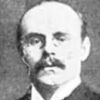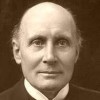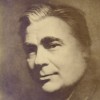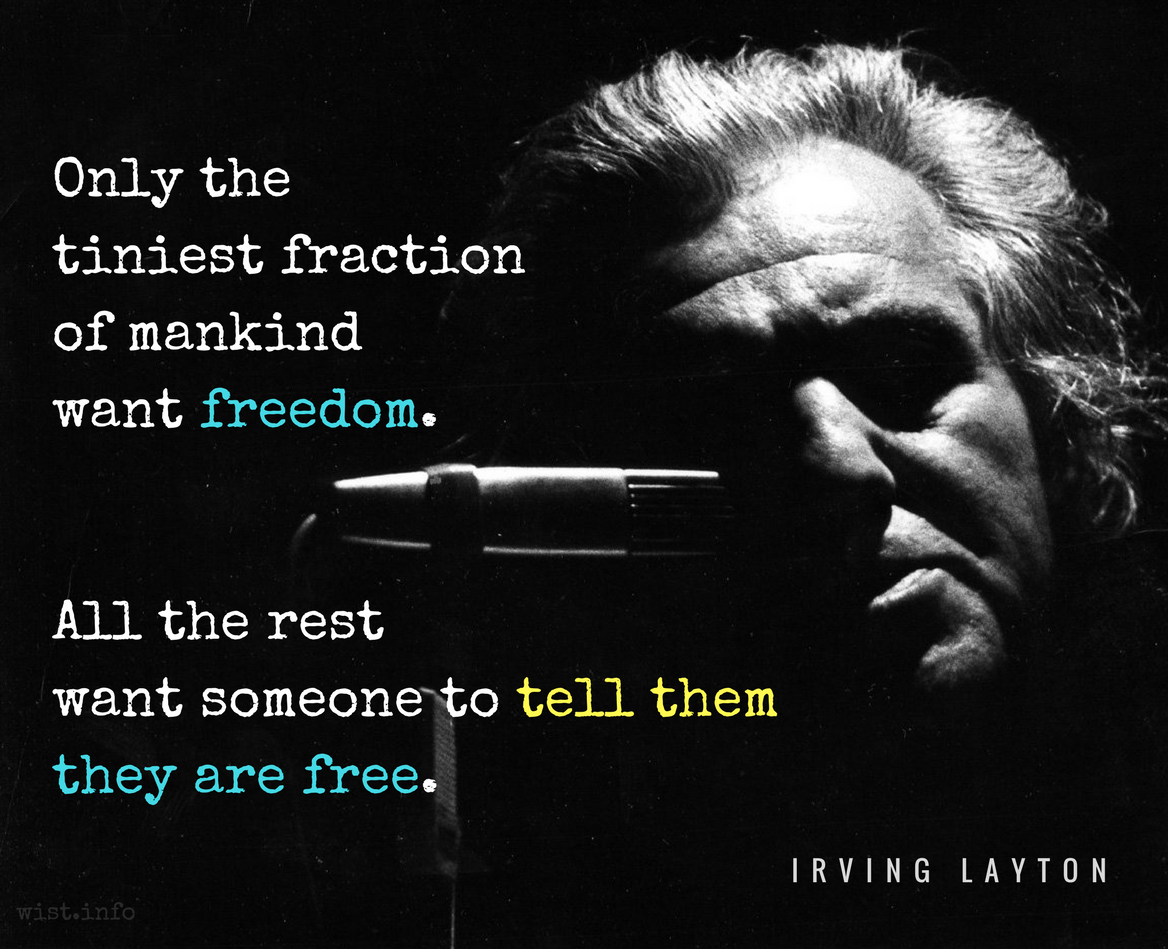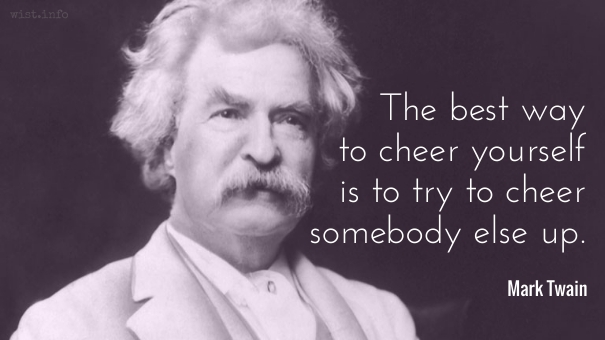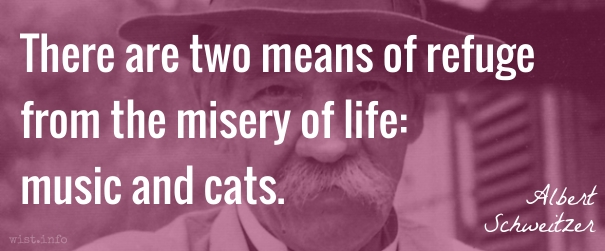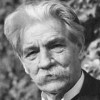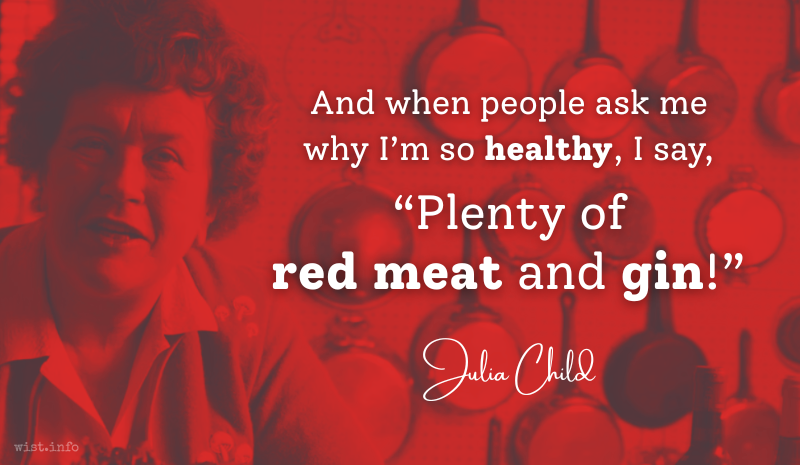I have always believed that the key to a happy marriage was the ability to say with a straight face, “Why, I don’t know what you’re worrying about. I thought you were very funny last night, and I’m sure everybody else did, too.”
Judith Martin (b. 1938) American author, journalist, etiquette expert [a.k.a. Miss Manners]
Common Courtesy, “Those Who Would Change the Country’s Manners Encounter Citizen Resistance” (1985)
(Source)
Quotations about:
comfort
Note not all quotations have been tagged, so Search may find additional quotes on this topic.
LEONATO:For, brother, men
Can counsel, and speak comfort to that grief
Which they themselves not feel.William Shakespeare (1564-1616) English dramatist and poet
Much Ado About Nothing, Act 5, sc. 1, l. 22ff (5.1.22-24) (1598)
(Source)
The knowledge that one has a remedy within reach is often as effectual as the remedy itself, if not more so.
F. Anstey (1856-1934) English novelist and journalist (pseud. of Thomas Anstey Guthrie)
Tourmalin’s Time Cheques, ch. 2 “The Second Cheque” (1885)
(Source)
Piglet took Pooh’s arm, in case Pooh was frightened.
A. A. Milne (1882-1956) English poet and playwright [Alan Alexander Milne]
House at Pooh Corner, ch. 4 “Tiggers Don’t Climb Trees” (1928)
(Source)
And remember, we all stumble, every one of us. That’s why it’s a comfort to go hand in hand.
Emily Kimbrough (1899-1989) American author and journalist
The Innocents from Indiana, ch. 17 (1950)
(Source)
At the very end of the book, a note from the protagonist's mother, about the protagonist having failed the entrance examination to Bryn Mawr.
Those who turn to God for comfort may find comfort but I do not think they will find God.
Mignon McLaughlin (1913-1983) American journalist and author
The Neurotic’s Notebook, ch. 8 (1963)
(Source)
If a book read when young is a lover, that same book, reread later on, is a friend. […] This may sound like a demotion, but after all, it is old friends, not lovers, to whom you are most likely to turn when you need comfort. Fatigue, grief, and illness call for familiarity, not innovation.
If a dog jumps in your lap, it is because he is fond of you. If a cat does the same thing, it is because your lap is warmer.
Alfred North Whitehead (1861-1947) English mathematician and philosopher
In Lucien Price, ed., Dialogues of Alfred North Whitehead, Dialogue 25, 1941-12-10 (1954)
(Source)
How little it takes to make life perfect! A good sauce, a cocktail after a hard day, a girl who kisses with her mouth half open!
H. L. Mencken (1880-1956) American writer and journalist [Henry Lewis Mencken]
A Little Book in C Major, ch. 4, § 21 (1916)
(Source)
A fanatical group all together have a comfortable feeling that they’re all friends with one another. They are all very much excited about the same thing. You can see it in any political party. There’s always a fringe of fanatics in any political party, and they feel very cozy with one another; and when that is spread about and is combined with a propensity to hate some other group, you get fanaticism well developed.
Bertrand Russell (1872-1970) English mathematician and philosopher
Interview by Woodrow Wyatt, BBC TV (1959)
(Source)
Collected in Bertrand Russell's BBC Interviews (1959) [UK] and Bertrand Russell Speaks His Mind (1960) [US]. Reprinted (abridged) in The Humanist (1982-11/12), and in Russell Society News, #37 (1983-02).
But if I err in this Opinion, that the Soul of Man is immortal, sure it is a pleasing Error, so pleasing that I can never shake it off while I live.
[Quod si in hoc erro, qui animos hominum immortalis esse credam, libenter erro nec mihi hunc errorem, quo delector, dum vivo, extorqueri volo.]
Marcus Tullius Cicero (106-43 BC) Roman orator, statesman, philosopher
De Senectute [Cato Maior; On Old Age], ch. 23 / sec. 85 (23.85) (44 BC) [tr. J. D. (1744)]
(Source)
(Source (Latin)). Alternate translations:
But if it be in erroure and oute of trouthe aftir the doctryne and scole of Epycures by cause that I beleve that the soules be undedly and Immortelle perdurable and evirlastyng I answere you that this errour pleasith me and I consente me in it right gladly and as long tyme as I lyve I wille not that any philosopher nor any othir of what condicyon that evir he be take awey fro me this erroure wherin I delyte me.
[tr. Worcester/Worcester/Scrope (1481)]
And if I do err because I think that the souls of men be immortal, verily I am well contented in the same error still to continue, and as long as I live I will never renounce nor recant the same, wherein I take such singular pleasure and comfort.
[tr. Newton (1569)]
But if I do erre that the soules of men bee immortall, I do err willingly, neither will I while I live be wrested from mine opinion wherein I am delighted.
[tr. Austin (1648), ch. 24]
My hope's, if this assurance hath deceiv'd,
(That I Man's Soul Immortal have believ'd)
And if I erre, no Pow'r shall dispossess
My thoughts of that expected happiness.
[tr. Denham (1669), Part 4]
But if I should be mistaken in this Belief, that our Souls are immortal, I am however pleased and happy in my Mistake; nor while I live, shall it ever be in the Power of Man, to beat me out of an Opinion, that yields me so solid a Comfort, and so durable a Satisfaction.
[tr. Logan (1744)]
And after all should this my firm persuasion of the soul's immortality prove to be a mere delusion, it is at least a pleasing delusion, and I will cherish it to my latest breath.
[tr. Melmoth (1773)]
But if I err in this, that I believe the soules of men to be immortal, I err willingly, nor do I wish this error to be wrested from me while I live.
[Cornish Bros. ed. (1847)]
And if I am wrong in this, that I believe the souls of men to be immortal, I willingly delude myself : nor do I desire that this mistake, in which I take pleasure, should be wrested from me as long as I live.
[tr. Edmonds (1874)]
But if I err in believing that the souls of men are immortal, I am glad thus to err, nor am I willing that this error in which I delight shall be wrested from me so long as I live.
[tr. Peabody (1884)]
But if I am wrong in thinking the human soul immortal, I am glad to be wrong; nor will I allow the mistake which gives me so much pleasure to be wrested from me as long as I live.
[tr. Shuckburgh (1895)]
But if in thinking souls immortal thus,
I am in error, I confess to you,
It is an error that I glory in,
And being so pleasant, I would not desire
To lose it while I live.
[tr. Allison (1916)]
And if I err in my belief that the souls of men are immortal, I gladly err, nor do I wish this error which gives me pleasure to be wrested from me while I live.
[tr. Falconer (1923)]
Even if I am mistaken in my belief that the soul is immortal, I make the mistake gladly, for the belief makes me happy, and is one which as long as I live I want to retain.
[tr. Grant (1960, 1971 ed.)]
And if I am deluded in believing that the soul of man is immortal, then I am glad to be deluded, and I hope no one, as long as I live, will ever wrench this delusion from me.
[tr. Copley (1967)]
But if I am mistaken in this belief of mine that the souls of men are immortal, then I am happy to be mistaken; but as long as I am still alive, I have no wish to be disabused of my mistake.
[tr. Cobbold (2012)]
I may be wrong in my belief in the immorality of the spirit: there are philosophers who think I am. I like my faith and I don't want to lose it.
[tr. Gerberding (2014)]
And if it is an error of mine to imply
That man is endowed with immortal soul,
I err with pleasure and promptly console
Myself as long as I am alive and spry.
[tr. Bozzi (2015)]
And if I’m wrong in my belief that souls are immortal, then gladly do I err, for this belief, which I hope to maintain as long as I live, makes me happy.
[tr. Freeman (2016)]
Other people’s truth may comfort us, but only your own persuades us.
Mignon McLaughlin (1913-1983) American journalist and author
The Second Neurotic’s Notebook, ch. 4 (1966)
(Source)
Now, nature, as I am only too well aware, has her enthusiasts, but on the whole, I am not to be counted among them. To put it rather bluntly, I am not the type who wants to go back to the land; I am the type who wants to go back to the hotel.
Let me explain, young man, the two blessings of human life.
Firstly Demeter, Mother Earth — call her what you will —
sustains us mortals with the gift of grain, of solid food.
But he who came next — son of Semele —
matched her gift to man: he brought us wine.
And wine brought peace to the troubled mind,
gave an end to grief, and gave us sleep — blessed sleep —
a forgetting of our sadness.[δύο γάρ, ὦ νεανία,
τὰ πρῶτ᾽ ἐν ἀνθρώποισι: Δημήτηρ θεά —
γῆ δ᾽ ἐστίν, ὄνομα δ᾽ ὁπότερον βούλῃ κάλει:
αὕτη μὲν ἐν ξηροῖσιν ἐκτρέφει βροτούς:
ὃς δ᾽ ἦλθ᾽ ἔπειτ᾽, ἀντίπαλον ὁ Σεμέλης γόνος
βότρυος ὑγρὸν πῶμ᾽ ηὗρε κεἰσηνέγκατο
280θνητοῖς, ὃ παύει τοὺς ταλαιπώρους βροτοὺς
λύπης, ὅταν πλησθῶσιν ἀμπέλου ῥοῆς,
ὕπνον τε λήθην τῶν καθ᾽ ἡμέραν κακῶν
δίδωσιν, οὐδ᾽ ἔστ᾽ ἄλλο φάρμακον πόνων.]Euripides (485?-406? BC) Greek tragic dramatist
Bacchæ [Βάκχαι], l. 274ff [Tiresias/Τειρεσίας] (405 BC) [tr. Robertson (2014)]
(Source)
To Pentheus, discussing Dionysus. (Source (Greek)). Alternate translations:
The two chief rulers of this nether world,
Proud boy, are Ceres, Goddess most benign,
Or Earth, (distinguish her by either name)
Who nourishes mankind with solid food:
Yet hath the son of Semele discover'd,
And introduc'd, the grape's delicious draught,
Which vies with her, which causes every grief
To cease among the wretched tribes of men,
With the enlivening beverage of the vine
Whenever they are fill'd; he also gives
Sleep, sweet oblivion to our daily cares,
Than which no medicine is with greater power
Endued to heal our anguish.
[tr. Wodhull (1809)]
For two things, young man, are first among men: the goddess Demeter -- she is the earth, but call her whatever name you wish; she nourishes mortals with dry food; but he who came afterwards, the offspring of Semele, discovered a match to it, the liquid drink of the grape, and introduced it to mortals. It releases wretched mortals from grief, whenever they are filled with the stream of the vine, and gives them sleep, a means of forgetting their daily troubles, nor is there another cure for hardships.
[tr. Buckley (1850)]
Youth! there are two things
Man's primal need, Demeter, the boon Goddess
(Or rather will ye call her Mother Earth?),
With solid food maintains the race of man.
He, on the other hand, the son of Semele,
Found out the grape's rich juice, and taught us mortals
That which beguiles the miserable of mankind
Of sorrow, when they quaff the vine's rich stream.
Sleep too, and drowsy oblivion of care
He gives, all-healing medicine of our woes.
[tr. Milman (1865)]
Two names, vain youth,
Rank first among mankind : Demeter one,
And Ge the other; give which name thou willest.
She nurtures man, but quenches not his thirst;
The son of Semele has helped this want:
He finds and grants to men the grape’s rich draught;
He takes away the woe of wearied souls,
Filling sad hearts with the vine’s ruddy stream;
And gives them sleep, the cure of daily grief,
The only drug which lightens human ills.
[tr. Rogers (1872), l. 262ff]
Two things there are, young prince, that hold first rank among men, the goddess Demeter, that is, the earth, -- call her which name thou please; she it is that feedeth men with solid food; and as her counterpart came this god, the son of Semele, who discovered the juice of the grape and introduced it to mankind, stilling thereby each grief that mortals suffer from, soon as e’er they are filled with the juice of the vine; and sleep also he giveth, sleep that brings forgetfulness of daily ills, the sovereign charm for all our woe.
[tr. Coleridge (1891)]
Two chiefest Powers,
Prince, among men there are: divine Demeter --
Earth is she, name her by which name thou wilt; --
She upon dry food nurtureth mortal men:
Then followeth Semelê's Son; to match her gift
The cluster's flowing draught he found, and gave
To mortals, which gives rest from grief to men
Woe-worn, soon as the vine's stream filleth them.
And sleep, the oblivion of our daily ills,
He gives -- there is none other balm for toils.
[tr. Way (1898)]
Young Prince, that in man's world are first of worth.
Dêmêtêr one is named; she is the Earth --
Call her which name thou will! -- who feeds man's frame
With sustenance of things dry. And that which came
Her work to perfect, second, is the Power
From Semelê born. He found the liquid shower
Hid in the grape. He rests man's spirit dim
From grieving, when the vine exalteth him.
He giveth sleep to sink the fretful day
In cool forgetting. Is there any way
With man's sore heart, save only to forget?
[tr. Murray (1902)]
Mankind, young man, possesses two supreme blessings.
First of these is the goddess Demeter, or Earth
whichever name you choose to call her by.
It was she who gave to man his nourishment of grain.
But after her there came the son of Semele,
who matched her present by inventing liquid wine
as his gift to man. For filled with that good gift,
suffering mankind forgets its grief; from it
comes sleep; with it oblivion of the troubles
of the day. There is no other medicine
for misery.
[tr. Arrowsmith (1960)]
For there are two things, young man,
that are first among humans: the goddess Demeter
(she is the earth; call her which name you like) --
she nourishes men by way of dry food;
and he who filled the complementary role, Semele's offspring,
discovered the grape-cluster's liquid drink and introduced it
to mortals, that which stops wretched men
from suffering, when they are filled with the stream of the vine,
and gives sleep as oblivion of the evils that happen by day;
nor is there any other cure against distress.
[tr. Kirk (1970)]
There are two powers, young man, which are supreme in human affairs: first, the goddess Demeter, she is the Earth -- call her by what name you will; and she supplies mankind with solid food. Second, Dionysus the son of Semele; the blessing he provides is the counterpart to the blessing of bread; he discovered and bestowed on men the service of drink, the juice that streams from the vine-clusters; men have but to take their fill of wine, and the sufferings of an unhappy race are banished, each day's troubles are forgotten in sleep -- indeed this is our only cure for the weariness of life.
[tr. Vellacott (1973)]
Think of two principles, two supreme
Principles in life. First, the principle
Of earth, Demeter, goddess of sil or what you will.
That nourishes man, yields him grain. Bread. Womb-like
It earths him as it were, anchors his feet.
Second, the opposite, and complementary principle --
Ether, locked in the grape until released by man.
For after Demeter came the son of Semele
And matched her present with the juice of grapes.
Think of it as more than drug for pain
Though it is that.
We wash our souls, our parched
Aching souls in streams of wine and enter
Sleep and oblivion. Filled with this good gift
Mankind forgets its grief.
[tr. Soyinka (1973)]
Two things, my boy,
are primary for men: goddess Demeter
(that’s Earth, call her whichever name you like),
the nourisher of mortals in dry food;
next comes her rival, the child of Semele:
the cluster’s wet drink he found and introduced
to men, that stops poor mortals their distress
when they are filled to flowing with the vine,
giver of sleep, forgetfulness of daily ills,
[tr. Neuburg (1988)]
Young man,
two are the forces most precious to mankind.
The first is Demeter, the Goddess.
She is the Earth -- or any name you wish to call her --
and she sustains humanity with solid food.
Next came the son of the virgin, Dionysus,
bringing the counterpart to bread, wine
and the blessings of life's flowing juices.
His blood, the blood of the grape,
lightens the burden of our mortal misery.
When, after their daily toils, men drink their fill,
sleep comes to them, bringing release form all their troubles.
There is no other cure for sorrow.
[tr. Cacoyannis (1982)]
Two things, young man,
Are first among mankind: Demeter,
She's the Earth -- call her by either name --
Who nourishes mortals with dry food.
The other, who came after, the seed
Of Semele, discovered Demeter's wet rival,
The drink of the grap, brought it to man
To ease pain for suffering mortals,
When they are filled with the flowing vine,
And to give sleep, forgetful of daily life.
There is no other cure for pain.
[tr. Blessington (1993)]
For there are two things, young man,
that are the primary elements among humans. First there’s the goddess Demeter.
She’s the earth But you can call her by whatever name you wish.
She nourishes mortals with dry foods. But he who came afterward,
Semele’s offspring, discovered the wet drink of the grape
as a counter-balance to Demeter’s bread. He introduced it
to mortals to stop their sorrow and pain.
Whenever men are filled with the stream of the grape-vine
they can sleep and forget the evils of the day.
No other medicine alleviates human suffering.
[tr. Esposito (1998)]
Young man, there are two
first principles in human life: the goddess Demeter --
or earth -- you may use what name you like --
who nourishes us by means of the dry element;
and the second one balances her exactly, that’s
Semélê’s child, who discovered, in the wet element,
a drink from grapes, a drink he delivered to us.
This brings relief from pain for long-suffering mortals
when they are filled with the vineyard’s bounty;
it grants sleep, lets them forget the evils of the day,
and there is no other cure for trouble.
[tr. Woodruff (1999)]
Young man -- there are two great first things that we
as mortals have: the goddess of the Earth,
Deméter -- call her by whatever name
You wish -- gave us our solid food, and he
Who came next, Semélê’s child, gave us liquid --
From the grape -- as a counterpart to Deméter's bread.
The god's invention, it give sus poor mortals
Release from pain and sorrow, when we're filled
With what flows from the vine; it gives us sleep,
When we can forget the evils of the day.
Nor for us mortals can another drug
For suffering surpass it.
[tr. Gibbons/Segal (2000), l. 321]
Two things are chief among mortals, young man: the goddess Demeter -- she is Earth but call her either name you like -- nourishes mortals with dry food. But he who came next, the son of Semele, discovered as its counterpart the drink that flows from the grape cluster and introduced it to mortals. It is this that frees trouble-laden mortals from their pain -- when they fill themselves with the juice of the vine -- this that gives sleep to make one forget the day's troubles: there is no other treatment for misery.
[tr. Kovacs (2002)]
There are two things in this world, young prince, that have been gifted to mankind. The first is the goddess Demeter or the earth, if you wish to call her so, or any other name you would give her, who feeds us mortals with solid food. The second is the son of Semele, who brought us the liquid hidden in the grape. This is no small gift, for when else can mortals loose the ties of their grief? It is wine -- that slips away the ragged robes of the day, sinking us into cool forgetting.
[tr. Rao/Wolf (2004)]
There are two things, young man that are most important to people: It is goddess Demetre (call her by whatever other name you want) who feeds the folk on Earth and who IS Earth; and her counterpart, Dionysos, the son of Semele, this god, the god who discovered the juice of the grape and which he brought to us mortals. This liquid holds back the pain of the tortured soul, gives soft sleep to folk and lets them forget their daily suffering. There’s truly no better medicine for pain or fatigue.
[tr. Theodoridis (2005)]
For there are two things, young one, two, that are
first among humans: One is the goddess Demeter --
and she is earth, call her whatever you will --
it is she who nourishes mortals in corn and grain;
but he who comes after, Semele's offspring, he invented them to match
the flowing drink of the grape and introduced it to mortals;
it gives wretched humans pause from pain when-
ever they are filled with the vine's stream,
and sleep, as aids to forget the troubles of the day:
there is no other drug that cures misery.
[tr. Valerie (2005)]
Young man, among human beings two things stand out preeminent, of highest rank. Goddess Demeter is one -- she's the earth (though can call her any name you wish), and she feeds mortal people cereal grains. The other one came later, born of Semele -- he brought with him liquor from the grape, something to match the bread from Demeter. He introduced it among mortal men. When they can drink, up what streams off the vine, unhappy mortals are released from pain. It grants them sleep, allows them to forget their daily troubles. Apart from wine, there is no cure for human hardship.
[tr. Johnston (2008)]
For there are two things, young man, two that are prized above all else by men. The first is the goddess Demeter, for she is the Earth. Call her whichever you prefer. It is she who brings forth solid food from the earth. Dry goods, if you will. But her junior, Semele’s child, showed us the other side of the coin, found the nectar in a bunch of grapes and gave it to mortals, letting them be free of pain when they partake of the river-of-the-vine. He gives us sleep, to forget the evils of the day for a time, and there is no better prescription for pain.
[tr. Pauly (2019)]
But let me tell you there are two powers over us, sometimes called "the dry" and "the wet." The first is personified by the goddess Demeter or Earth -- whichever you wish to call her; she nourishes mortals with dry food, with bread. This new god, Semele's child, has come with a matching gift, a crystalline liquid from clustered grapes which he generously brought to end all human suffering. Wine fills the emptiness in the grieved heart and helps us forget in blissful sleep. Hsi is the only medicine to cure our pain.
[tr. Behr/Foster (2019)]
Two things, young man, have supremacy among humans: The goddess Demeter -- she is the earth, but call her whatever name you wish -- nourishes mortals with dry food. But he who came then, the offspring of Semele, invented a rival, the wet drink of the grape, and introduced it to mortals. It releases wretched mortals from their pains, whenever they are filled with the stream of the vine, and gives them sleep, a means of forgetting their daily woes. There is no other cure for pains [ponoi].
[tr. Buckley/Sens/Nagy (2020)]
No one is ever warmed by wool pulled over their eyes.
Marcelene Cox (1900-1998) American writer, columnist, aphorist
“Ask Any Woman” column, Ladies’ Home Journal (1948-02)
(Source)
The conflict between what one is and who one is expected to be touches all of us. And sometimes, rather than reach for what one could be, we choose the comfort of the failed role, preferring to be the victim of circumstance, the person who didn’t have a chance.
Merle Shain (1935-1989) Canadian journalist and author
Hearts That We Broke Long Ago, Part 3, ch. 7 (1983)
(Source)
When I was writing a column for Family Circle, I had planned one in praise of shabbiness. A house that does not have one worn, comfy chair in it is soulless. It all comes back to the fact that we are not asked to be perfect, only human.
May Sarton (1912-1995) Belgian-American poet, novelist, memoirist [pen name of Eleanore Marie Sarton]
Journal of a Solitude (1973)
(Source)
I tore myself away from the safe comfort of certainties through my love for truth — and truth rewarded me.
Simone de Beauvoir (1908-1986) French author, existentialist philosopher, feminist theorist
All Said and Done (1974)
(Source)
boss there is always
a comforting thought
in time of trouble when
it is not our trouble.Don Marquis (1878-1937) American journalist and humorist
“comforting thoughts,” archy does his part (1935)
(Source)
It is no defense of superstition and pseudoscience to say that it brings solace and comfort to people, and that therefore we “elitists” should not claim to know better and to take it away from the less sophisticated. If solace and comfort are how we judge the worth of something, then consider that tobacco brings solace and comfort to smokers; alcohol brings it to drinkers; drugs of all kinds bring it to addicts; the fall of cards and the run of horses bring it to gamblers; cruelty and violence bring it to sociopaths. Judge by solace and comfort only and there is no behavior we ought to interfere with.
Isaac Asimov (1920-1992) Russian-American author, polymath, biochemist
“The Never-ending Fight,” The Humanist (Mar/Apr 1989)
(Source)
“Supposing a tree fell down, Pooh, when we were underneath it?”
“Supposing it didn’t,” said Pooh after careful thought.
Piglet was comforted by this.A. A. Milne (1882-1956) English poet and playwright [Alan Alexander Milne]
House at Pooh Corner, ch. 8 “Piglet Does a Very Grand Thing” (1928)
(Source)
Here’s a comforting thought for you, Peter. However long you may live, the world will never lose its ability to surprise you with its beauty.
When there was room on the ledge outside of the pot s and boxes for a cat, the cat was there — in sunny weather — stretched at full length, asleep and blissful, with her furry belly to the sun and a paw curved over her nose. Then the house was complete, and its contentment and peace were made manifest to the world by this symbol, whose testimony is infallible. A home without a cat — and a well-fed, well-petted, and properly revered cat — may be a perfect home, perhaps, but how can it prove title?
Mark Twain (1835-1910) American writer [pseud. of Samuel Clemens]
Pudd’nhead Wilson, ch. 1 (1894)
(Source)
In politics as on the sickbed, people toss from one side to the other, fancying that they will be more comfortable.
Johann Wolfgang von Goethe (1749-1832) German poet, statesman, scientist
Conversation with Friedrich von Müller (29 Dec 1825)
(Source)
In Biedermann, Goethes Gespräche, Gesamtausgabe, #2379 (1909). Usual variant: "In politics, as on the sickbed, people toss from one side to the other, thinking they will be more comfortable."
I have no faith in the sense of comforting beliefs which persuade me that all my troubles are blessings in disguise.
Rebecca West (1892-1983) British author, journalist, literary critic, travel writer [pseud. for Cicily Isabel Fairfield]
“Pleasure Be Your Guide,” The Nation, “Living Philosophies” series #10 (25 Feb 1939)
(Source)
Adapted into Clifton Fadiman, I Believe: The Personal Philosophies of Certain Eminent Men and Women of Our Time (1952)
The person who is sick in the body needs a doctor;
someone who is sick in the mind needs a friend
For a well-meaning friend knows how to treat grief.[Τῷ μὲν τὸ σῶμα διατεθειμένῳ κακῶς
χρεία ‘στ’ ἰατροῦ, τῷ δὲ τὴν ψυχὴν φίλου·
λύπην γὰρ εὔνους οἶδε θεραπεύειν φίλος.]Menander (c. 341 - c. 290 BC) Greek comedic dramatist
Fragment 591 K., in Stobaeus, Anthology [tr. @sentantiq]
(Source)
Alt. trans.:
- "For him who is ill at ease in his body there is need of a physician, but need of a friend for him whose soul is ill. For loyal words have the secret of healing grief." [tr. Allinson (1921)]
- "Sick bodies need a doctor, minds a friend; / Kind words have skill the mourner's pain to mend." [tr. Edmonds]
Men speak the truth of one another when each reveres the truth in his own mind and in the other’s mind; but how shall my friend revere the truth in my mind when I myself am careless about it, when I believe things because I want to believe them, and because they are comforting and pleasant?
William Kingdon Clifford (1845-1879) English mathematician and philosopher
“The Ethics of Belief,” Contemporary Review (Jan 1877)
(Source)
In the affluent society no sharp distinction can be made between luxuries and necessaries.
John Kenneth Galbraith (1908-2006) Canadian-American economist, diplomat, author
The Affluent Society, ch. 21, sec. 4 (1998, 4th ed.)
(Source)
On sales taxes. Sometimes quoted (from other editions?) as "useful distinction."
What Mr. Howells said of the American theater is true of the whole American attitude toward life. “A tragedy with a happy ending” is exactly what the child wants before he goes to sleep: the reassurance that “all’s well with the world” as he lies in his cozy nursery. It is a good thing that the child should receive this reassurance; but as long as he needs it he remains a child, and the world he lives in is a nursery-world. Things are not always and everywhere well with the world, and each man has to find it out as he grows up. It is the finding out that makes him grow, and until he has faced the fact and digested the lesson he is not grown up — he is still in the nursery.
Edith Wharton (1862-1937) American novelist
French Ways and Their Meaning, ch. 4 “Intellectual Honesty” (1919)
(Source)
Commenting on William Dean Howells' comment to her on American taste in theater and drama: "What the American public wants is a tragedy with a happy ending."
When one is too old for love, one finds great comfort in good dinners.
Zora Neale Hurston (1891-1960) American writer, folklorist, anthropologist
Moses, Man of the Mountain, ch. 6 [Mentu] (1939)
(Source)
Men are conservatives when they are least vigorous, or when they are most luxurious. They are conservatives, after dinner, or before taking their rest; when they are sick, or aged: in the morning, or when their intellect or their conscience have been aroused, when they hear music, or when they read poetry, they are radicals.
Ralph Waldo Emerson (1803-1882) American essayist, lecturer, poet
“New England Reformers,” lecture, Boston (1844-03-03), Essays: Second Series (1844)
(Source)
The art of living easily as to money, is to pitch your scale of living one degree below your means.
Henry Taylor (1800-1886) English dramatist, poet, bureaucrat, man of letters
Notes from Life, “Of Money” (1853)
(Source)
But if at the Church they would give us some ale,
And a pleasant fire, our souls to regale,
We’d sing and we’d pray all the live-long day,
Nor ever once wish from the Church to stray.
… And God like a father rejoicing to see
His children as pleasant and happy as he,
Would have no more quarrel with the Devil or the barrel,
But kiss him and give him both drink and apparel.
There is not so much Comfort in the having of Children as there is Sorrow in parting with them.
Thomas Fuller (1654-1734) English physician, preacher, aphorist, writer
Gnomologia: Adages and Proverbs, #4932 (1732)
(Source)
The best way to cheer yourself is to try to cheer somebody else up.
Mark Twain (1835-1910) American writer [pseud. of Samuel Clemens]
Note (1896-11-26), Mark Twain’s Notebook, ch. 27 “England” (1935) [ed. Albert Bigelow Paine]
(Source)
Written while in Guilford, England, shortly after the death of his daughter Susy in America.
Often given as "The best way to cheer yourself up is to try to cheer somebody else up." More discussion here.
There are two means of refuge from the misery of life: music and cats.
[Zweierlei eignet sich als Zuflucht vor den Widrigkeiten des Lebens: Musik und Katzen.]
Man is always looking for someone to boast to; woman is always looking for someone to complain to.
I shall change their mourning into gladness, comfort them, give them joy after their troubles.
The Bible (The Old Testament) (14th - 2nd C BC) Judeo-Christian sacred scripture [Tanakh, Hebrew Bible], incl. the Apocrypha (Deuterocanonicals)
Jeremiah 31:13 [NJB (1985)]
(Source)
Alternate translations:
For I will turn their mourning into joy, and will comfort them, and make them rejoice from their sorrow.
[KJV (1611)]
I will comfort them and turn their mourning into joy,
their sorrow into gladness.
[GNT (1976)]
I will turn their mourning into joy;
I will comfort them and give them gladness for sorrow.
[NRSV (1989 ed.)]
I will turn their mourning to joy,
I will comfort them and cheer them in their grief.
[RJPS (2023 ed.)]
And when people ask me why I’m so healthy, I say, “Plenty of red meat and gin!”
Julia Child (1912-2004) American chef and writer
Interview in The World: Journal of the Unitarian Universalist Assoc. (1992)
(Source)
On her 80th birthday. "Red meat and gin" was frequently mentioned by Child in interviews when asked either (a) her comfort foods or (b) the secret of her longevity. She does not seem to have used it in her writing.
Examples:
- Long life: Interview with Rena Pederson
- Long life: Quoted in the Minneapolis Star Tribune, requoted in Reader's Digest (1997-01)
- Confort food: Source
Most people today don’t want honest answers insofar as honest means unpleasant or disturbing. They want a soft answer that turneth away anxiety. They want answers that are, in effect, escapes.
A man without mirth is like a waggon without springs, in which one is caused disagreeably to jolt by every pebble over which it runs. A man with mirth is like a chariot with springs, in which one can ride over the roughest road, and scarcely feel anything but a pleasant rocking motion.
Henry Ward Beecher (1813-1887) American clergyman and orator
Royal Truths (1862)
(Source)
Frequently rendered, but unsourced in this form:
A person without a sense of humor is like a wagon without springs. It's jolted by every pebble on the road.
In Proverbs from Plymouth Pulpit, "The Human Mind" [ed. Drysdale (1887)], Beecher is recorded similarly saying:
A practical, matter-of-fact man is like a wagon without springs: every single pebble on the road jolts him; but a man with imagination has springs that break the jar and jolt.
There are very few honest friends — the demand is not particularly great.
[Es gibt wenig aufrichtige Freunde. Die Nachfrage ist auch gering.]
Marie von Ebner-Eschenbach (1830-1916) Austrian writer
Aphorisms [Aphorismen], No. 528 (1880) [tr. Scrase & Mieder (1994)]
(Source)
Be careful. People like to be told what they already know. Remember that. They get uncomfortable when you tell them new things. New things … well, new things aren’t what they expect. They like to know that, say, a dog will bite a man. That is what dogs do. They don’t want to know that man bites a dog, because the world is not supposed to happen like that. In short, what people think they want is news, but what they really crave is olds … Not news but olds, telling people that what they think they already know is true.
Ah! there is nothing like staying at home for real comfort.
A comfortable house is a great source of happiness. It ranks immediately after health and a good conscience.
Sydney Smith (1771-1845) English clergyman, essayist, wit
Letter (1843-09-29) to Lord Murray
(Source)
Truth, of course, must of necessity be stranger than fiction, for we have made fiction to suit ourselves.
There is nowhere you can go and only be with people who are like you. Give it up.
Bernice Johnson Reagon (b. 1942) American song leader, composer, scholar, social activist
“Coalition Politics: Turning the Century,” presentation, West Coast Women’s Music Festival, Yosemite (1981)
(Source)
From his cradle to his grave a man never does a single thing which has any FIRST AND FOREMOST object but one — to secure peace of mind, spiritual comfort, for HIMSELF.



